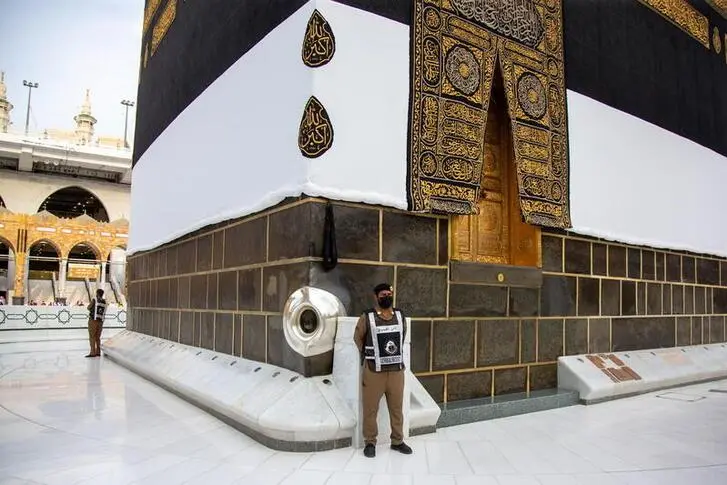
Introduction
The Black Stone, also known as the Hajr-e-Aswad, rests as an esteemed relic embedded in the eastern corner of the Kaaba, the holiest site in Islam. Muslims worldwide hold it as a revered symbol of unity and reverence, but many often misunderstand its significance. Muslims do not worship the Black Stone; rather, it serves as a tangible reminder of their faith and a symbol of their submission to Allah Almighty alone.
Significance of the Black Stone
The Black Stone’s significance stems from its connection to the Prophet Ibrahim (Abraham) and his family. According to Islamic tradition, the Black Stone was a white stone from Paradise that was given to Adam and Hawa (Eve). It turned black over time due to the sins of humanity. The angel Gabriel eventually brought the stone to Prophet Ibrahim for placement in the Kaaba.
The Quran and Hadith, the primary sources of Islamic guidance, provide insights into the Black Stone’s significance. The Quran states:
And (remember) when We made the Sacred House, a centre and a sanctuary for the people (saying), “(You may) take the standing-place of Abraham as a site of prayer.” And We entrusted Abraham and Ishmael to purify My House for those who circle it, who meditate in it, and who bow and prostrate themselves (in prayer).
Surah Al-Baqarah – 125
And the Hadith states:
The Black Stone descended from the Paradise, and it was more white than milk, then it was blackened by the sins of the children of Adam.
Jami` at-Tirmidhi 877
Prophet Ibrahim’s Role
Prophet Ibrahim played a significant role in the history of the Black Stone. Allah Almighty commanded Prophet Ibrahim and his son Prophet Ismael to rebuild the Kaaba in Islamic tradition. During the construction process, Prophet Ibrahim encountered a shortage of stones. As he prayed for guidance, the angel Gabriel descended from heaven and presented him with the Black Stone, instructing him to embed it in the eastern corner of the Kaaba.
Prophet Ibrahim’s obedience and devotion to God attribute the placement of the Black Stone in the Kaaba. It symbolizes the unity of humanity and serves as a reminder of Prophet Ibrahim’s role as a prophet and patriarch. Muslims believe that the stone is a divine gift and a source of blessings. They kiss or touch it during the tawaf, the circumambulation of the Kaaba, as an act of reverence and devotion to God. The Black Stone’s presence in the Kaaba highlights Prophet Ibrahim’s importance in Islamic history and his role as a cornerstone of Islamic faith.
The Act of Kissing or Touching the Black Stone
During the Hajj pilgrimage, kissing or touching it isn’t obligatory. However, Muslims consider it a Sunnah. A commendable practice that the Prophet Muhammad ﷺ encouraged. Muslims perform this act with humility and reverence, not as an act of worship, but as a gesture of love and respect for the symbol it represents.
Similarities with Expressions of Love and Respect
Just as we kiss our parents out of love and affection, or touch the belongings of our loved ones to feel closer to them, Muslims interact with the Black Stone as a way of expressing their devotion to Allah Almighty. It’s a tangible connection to the Prophet Muhammad ﷺ and the generations of pilgrims who have come before them.
Islamic Teachings on the Black Stone
In the Quran, Allah Almighty states:
Verily, the first House of worship ordained for mankind is that which is in Bakkah (Mecca), a blessing and a guidance for the worlds.
Ali ‘Imran 96
This verse emphasizes the significance of the Kaaba, the structure that houses the Black Stone, without elevating the Black Stone itself to the status of an object of worship.
Ibn ‘Umar (Allah be pleased with them) reported that Umar (Allah be pleased with him) kissed the Stone and said:
I am kissing you, whereas I know that you are a stone, but I saw Allah’s Messenger ﷺ kissing you (that is why I kiss you).
Sahih Muslim 1270b
This statement clearly indicates that the act of touching or kissing the Stone is not a form of worship; instead, it’s an expression of faith and a supplication for forgiveness.
Conclusion
In conclusion, the Hajr-e-Aswad is a symbol of unity, reverence, and submission to Allah. It serves as a reminder of the shared faith of Muslims worldwide and their unwavering devotion to their Creator. Muslims do not worship the Hajr-e-Aswad; they respect it as a sacred relic that connects them to their faith and the Prophet Muhammad. Just as we express love and respect for our parents and cherished possessions, Muslims interact with the Black Stone as a way of expressing their devotion to Allah and seeking His blessings. Click here to learn why a masculine pronoun is traditionally used for the Almighty.
Last modified: 02/12/2023

What’s up, just wanted to tell you, I enjoyed this article.
It was inspiring. Keep on posting!
Чтобы достичь хорошего результата, важно также молиться.